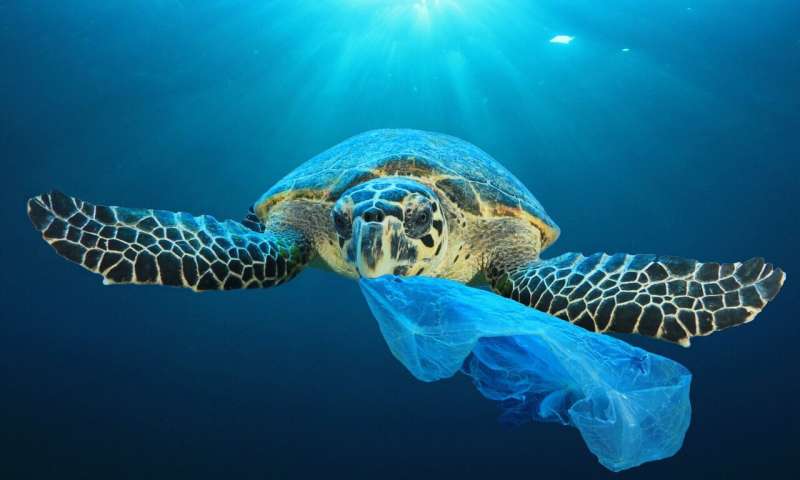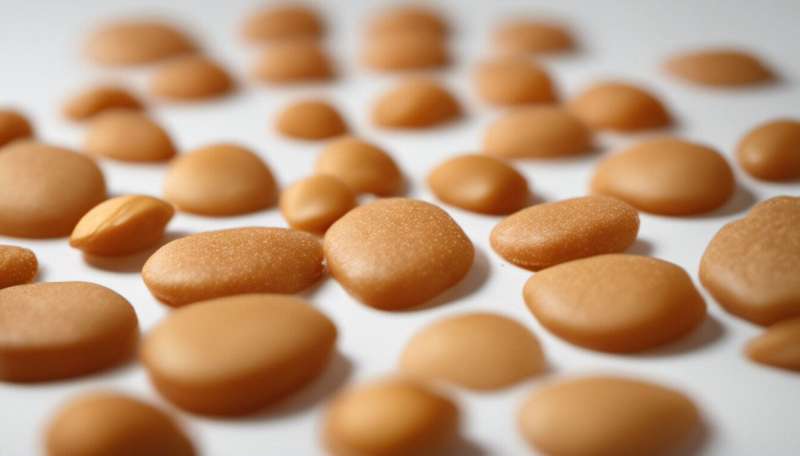No such thing as a plastic-free lunch?

People often ask us about going "plastic free". Have you tried it? I have and it really isn't that easy. I lasted only one week. It can be expensive and time consuming and is particularly difficult if (like me) you live away from a big town or city. "Plastic free" is certainly a great strapline to motivate people, to help you think about your own impacts and to help you feel empowered to deal with the plastics mess we find ourselves in. But is going plastic free realistic and is it necessary? And if we go plastic free, what are the appropriate alternatives to plastic?
Yes, most plastic is made from fossil fuels (from specific fractions of crude oil that are not used for fuel) – and bio-plastics will have impacts in terms of land use for raw material. Yes, plastic often contains additives that can be toxic, with implications when it enters food chains. And, yes, plastic is a significant problem for biodiversity once in the environment – which is why FFI has been addressing this issue since 2009.
But, as a material, plastic has some significant benefits that have helped fuel the growth in its use. It is both lightweight and durable, creating new solutions for transportation (and thus reducing carbon outputs), potentially prolonging shelf life and enabling breakthroughs in medicine.
What are the alternatives?
There is significant debate about the pros and cons of plastic against other traditional materials (be they glass bottles, cardboard, aluminium tins or reusable jute bags). Any resource use has environmental consequences, but it can be difficult to calculate the relative impacts of different materials across the life of their use. We should be particularly aware of potential carbon emissions when alternatives are considered. In reality, there are likely to be some situations where plastic may indeed have the lower environmental impact, and others where its costs far outweigh the benefits. Demonising plastic may not be helpful, when we look at the bigger picture. Use of plastic may not always be bad; where it is used, however, it needs to be demonstrably the best option and that use needs to be well managed.
The key impact from plastic, from our perspective, is the damage caused when it pollutes the natural environment. At the moment we rebel against its use because the systems needed to prevent it from escaping into our rivers and oceans are either lacking or ineffective. Does this mean we shouldn't use plastic at all?
If we completely reject plastic, we are less likely to value it as a resource to be embraced and used constructively. Alternatively, if we promote its recycling, there is an argument that we will then value and reuse plastic, which can help incentivise systems that make it less likely to escape. If we grow recycling capacity we will be better able to deal with the mountains of plastics that already exist – and which will otherwise be burned, or sent to languish in landfill, or escape into the environment.

However, while prioritising the reuse of plastic already in circulation, it remains vital to slow down the global escalation in virgin plastic production that will otherwise swamp whatever management systems are established.
Biodegradable plastics?
What about other, novel, alternative materials? Specifically, the idea of biodegradable plastics that purportedly have less impact on the environment. FFI is thrilled to see the plethora of innovation inspired by the quest for truly "bio-benign" materials. We would love to see materials that replicate the benefits of plastic (being lightweight, impervious and durable) but which can quickly disintegrate to benign substances in all environmental contexts, and are scalable without creating a whole new set of problems.
To date, however, we remain deeply sceptical about the current development of most so-called "biodegradable" plastics. Most of the materials currently marketed as "biodegradable" do not meet any formal standards and, in particular, are not designed to biodegrade in the ocean, where instead they behave just like any other plastic. Indeed, some biodegradable plastics may be worse than traditional plastic – particularly when they are designed to break down immediately into microplastics, which can be immediately eaten by marine life.
So, what is the solution? We can't yet see a simple alternative to plastic. Which begs the question, is the problem really plastic itself, or is it actually our single-use culture? Promoting other single-use alternatives to plastic will continue to promote wasteful, unnecessary use of environmental resources. Instead, we should look for a shift towards reusability and recycling – in which context plastic may sometimes be a suitable material.
A call for sensible plastic
FFI has not adopted a "plastic-free" agenda; rather we have promoted the idea of "sensible plastic". We recognise plastic is a versatile material that will have continued use in our society, but we need to reduce its unnecessary use – particularly wasteful one-off use, we need to curtail the exponential growth in virgin plastic production, we need to value plastic and reuse (or recycle) it, and we need to take action on the specific sources of plastics that most frequently pollute our waterways and oceans.
I may not be going plastic free, but I am being mindful about how I can avoid unnecessary packaging, and I will be relying on my reusable plastic Tupperware containers, my collapsible plastic cup and my robust plastic bottle to reduce my use of any on-the-go items, plastic or otherwise.
Provided by Fauna & Flora International




















